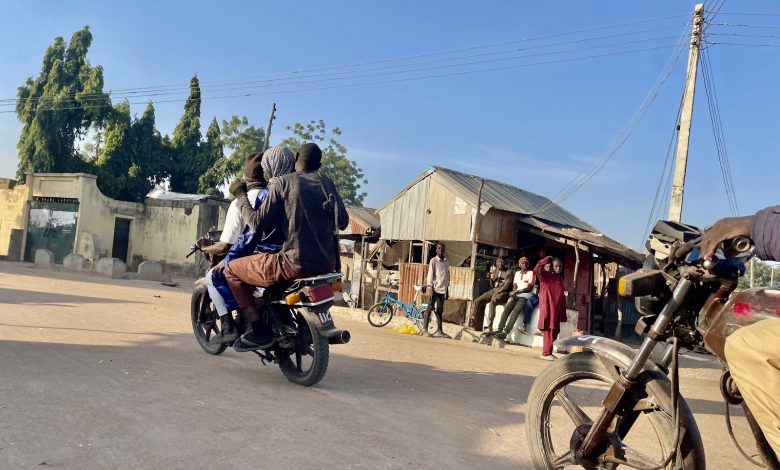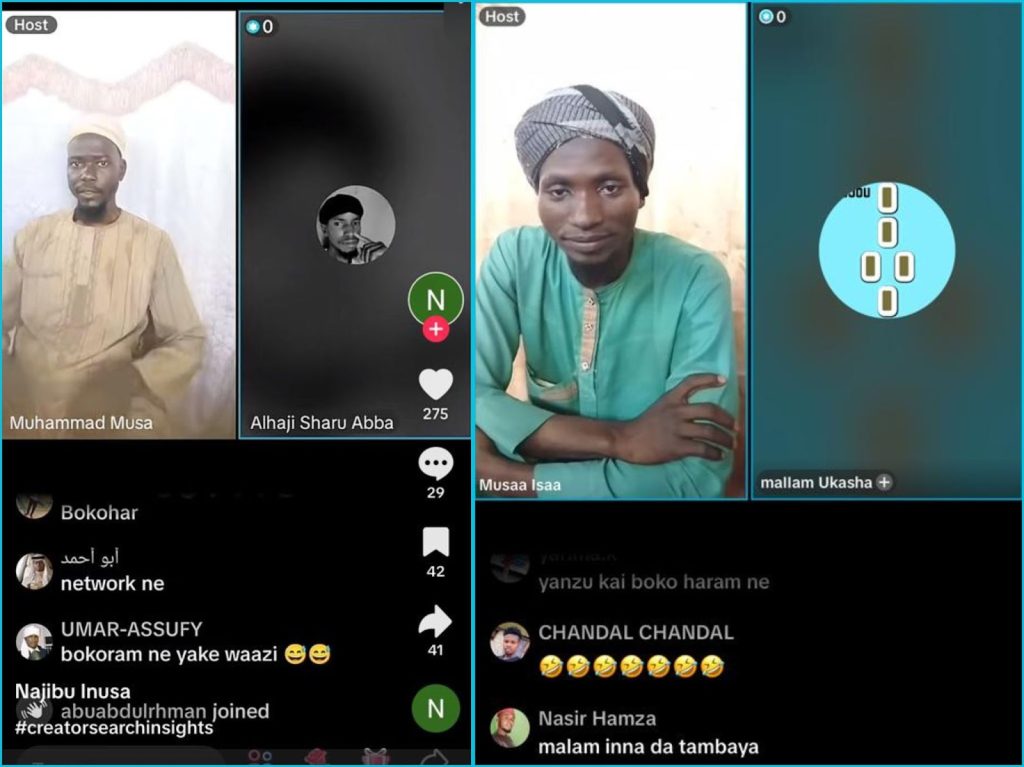Boko Haram/ISWAP Resurgence in Lake Chad Region Sparks Alarm
A renewed campaign of terror is sweeping Borno State and parts of the Lake Chad region, with insurgents deploying drones and satellite tech to strike communities and military outposts. The extremist groups are also escalating their online warfare, using social media to spread radical propaganda as killings, abductions, and IED attacks surge.

The resurgence of Boko Haram and Islamic State West African Province (ISWAP) activities in Borno State, northeastern Nigeria, and parts of the Lake Chad region has raised concerns about the fragility of the grounds gained in the fight against insurgency in the area. The incidents have been marked by more sophisticated operations, incessant small-scale abductions, and major funds generation from high-profile abductions.
“It is unfortunate that the renewed Boko Haram attacks and kidnappings in many communities, almost on a daily basis without confrontation, signalled that Borno State is losing ground,” Babagana Umara Zulum, the Borno State governor, decried at a recent security meeting in Maiduguri.
Locals and officials alike are also voicing growing alarm as a wave of terror resurfaces across the state, echoing the darkest days of the insurgency.
“I am really scared of the state of security in Borno these days because of the magnitude of reports and news I see online about attacks by Boko Haram,” Victor Moses, a car parts dealer in Maiduguri, told HumAngle. “It is too much. Every day, I scroll through my Facebook feed and see reports of Boko Haram attacks. What worries me most is that it’s happening right on our doorstep.”
Communities are witnessing fresh assaults by Boko Haram and, more prominently, its more sophisticated offshoot, ISWAP, which has escalated its operations on the ground and in the digital realm.
In recent weeks, the extremist group has launched attacks on villages, military installations, and transportation routes while also intensifying its online presence—leveraging TikTok, a popular social media platform, to spread propaganda and justify its ideology. This tactic was previously more associated with terrorists operating in Nigeria’s northwestern region.
Open-source monitoring conducted by HumAngle reveals multiple TikTok accounts hosting live sessions where radical individuals and self-acclaimed jihadists spread propaganda, justify killings, and lecture young audiences about extremist ideologies. Some of these sessions are interactive, with viewers debating, supporting, or condemning the rhetoric.

Some TikTok accounts, like @muhammad.musa336, continue to upload recorded videos of sessions promoting teachings and lectures supporting or justifying their radical ideologies. The TikTok account has amassed over 500,000 views and more than 20,000 likes across all videos published on the account, showing the level of reach they have.
Of advanced technologies and high-profile abductions
ISWAP has undergone several technological advancements, aiding its expanded attacks and operations. For example, the group now deploys artificial intelligence (AI) for video editing and the editing of written electronic communications; uses surveillance technology and high-speed satellite internet like Starlink; and employs weaponised drones, primarily for recording footage of their prayers and sermons for use by their public relations unit.
The group is believed to have relied on some of these advancements to orchestrate a series of kidnappings, including the abduction of the now-released Borno high court judge and his wife, a magistrate judge. More recently, on March 2, Abubakar Eljuma, a prominent professor and dean of the Faculty of Engineering at the Nigerian Army University, Biu, in Borno State, was abducted and remains in captivity.
These abductions have also proven to be a major funding source for the group. According to a source with knowledge of several ransom negotiations in Borno and Yobe States, the group has amassed more than ₦1 billion from abductions since 2024.
HumAngle’s investigations reveal that recent coordinated attacks, which have resulted in fatalities, instilled fear, and displaced families, are characterised by ambushes, the planting of improvised explosive devices (IEDs), and nighttime raids on communities. There have also been instances where insurgents entered villages under false pretences, only to unleash chaos and violence.
This increase in insecurity has threatened the government’s efforts to repatriate displaced communities and refugees, and it also destabilises the ongoing peace-building efforts in the region. The regional stabilisation efforts strongly promoted by the recent Lake Chad Governors Forum have also been undermined since achieving lasting security is difficult.
The resettled communities that are seen as symbols of recovery from the decade-long insurgency in the region are now at greater risk than when the process began two years ago.
On March 20, HumAngle reported one of the darker turns of the operations, with terrorists now preferring stealth and precision under the cover of night. The attack occurred in Kaleri, a densely populated community in the Jere Local Government Area, Borno State, where the terror group sneaked in quietly, moved unnoticed around the area, and then unleashed sporadic gunfire, sending residents fleeing in panic.
A 12-year-old boy was killed by a stray bullet during a night raid in Kaleri, a semi-urban community near the Borno State capital, leaving residents shattered. The assailants fled as security forces arrived, but the damage had been done.
Though the motive behind the attack remains unclear, its execution was swift, erratic, and brutal—hallmarks of recent insurgent operations. Kaleri, like many fringe communities, has endured repeated assaults, especially targeting civilians gathering firewood or farming on the outskirts. Locals told HumAngle this latest tragedy is part of a worrying pattern, underscoring how even areas close to Maiduguri are no longer immune to extremist violence.
There was also a similar night attack on Dec. 21, 2024, where suspected ISWAP fighters on motorbikes sneaked into Dalori village in the Konduga Local Government Area. The attack targeted a local security post guarding displaced families living in the 1000 Housing Unit and the host community. Two vigilantes on duty were caught off guard, leading to the killing of one and the wounding of the other. The attackers burned two vehicles and fled with a patrol pickup, leaving the community terrorised.
The terrorist groups also reactivated an old tactic of terror, deploying suicide attackers to communities and planting IEDs along major roads.
In July 2024, 32 persons were reported dead after a series of suicide attacks on Gwoza town in the Gwoza Local Government Area of the state. The suicide mission, carried out by Boko Haram, resulted in widespread destruction and devastation.
On March 11, a police Rapid Response Squad on routine patrol struck one IED device in Garin Kuturu, a village between Auno and Jakana along the Maiduguri–Kano road. Though no lives were lost, some officers sustained injuries, and a patrol vehicle was heavily damaged. The terrifying incident was confirmed to HumAngle by the Borno Police Command’s spokesperson, Nahum Kenneth Daso.
Communities are not only living in fear of bullets and bombs but also enduring a ruthless campaign of abductions and extortion. In March 2025 alone, a displaced herder community living in the Abadam Local Government Area had to raise ₦2.5 million to secure the release of four children abducted by suspected Boko Haram members. Just a week later, two more adults were taken, with ₦3 million demanded as ransom. Then came another case where six children were abducted on March 15.
The incessant cases of abductions have financially exhausted families, prompting herding communities to resort to cross-border crowdfunding, rallying support from relatives and sympathisers as far away as Sudan, Chad, Niger, and Cameroon. But even that is no longer sustainable.
Similarly, in Amarwa, a remote village along the Maiduguri–Konduga road, four residents were abducted on Jan. 31 while collecting firewood in nearby bushes. The attackers, believed to be renegade fighters linked to ISWAP, demanded a ₦2 million ransom, then later renegotiated to ₦1.5 million on the condition that part of it be used to purchase four smartphones and food items.
In just three days, the Amarwa community rallied a crowdfunding campaign across neighbouring settlements, eventually delivering the ransom, phones, and goods for the release of the captives on Feb. 3.
The evolving pattern of violence in Borno has also targeted Nigeria’s military formation. On Saturday, Jan. 4, insurgents launched a deadly assault on an army base in Sabon Gari, a remote community in the Damboa Local Government Area.
The attack came just days after the Nigerian military intercepted and killed a high-ranking ISWAP commander during an operation on the Maiduguri–Damboa road.
What followed appears to be a well-coordinated campaign of vengeance. Within that same week, insurgents ambushed members of the Civilian Joint Task Force (CJTF). They attacked a military convoy in the area, incidents that framed the Sabon Gari base attack as a climax in a series of retaliatory strikes.
The terrorist groups also carry out gruesome killings of military personnel they have abducted or held captive. A recent case happened in March 2025, where three Nigerian Army personnel were abducted and later lined up and shot to death by gunmen. To show their gruesome act, ISWAP, who claimed responsibility, released a video of the despicable killing.
HumAngle has reported devastating terrorist operations around the fringes of Nigeria’s border. In February 2025, communities in Kolofata, a border district in northern Cameroon, faced fresh violence from suspected Boko Haram members.
Humanitarian crisis deepens as support wanes
Beyond the rising tide of violence, displaced communities across northeastern Nigeria continue to grapple with a worsening humanitarian crisis, marked by acute food shortages, malnutrition, healthcare collapse, and chronic insecurity. The situation has been compounded by significant cuts in global aid, including funding from USAID, placing already vulnerable populations at even greater risk.
As the region faces this dual crisis of terror and deprivation, the path forward demands more than external support. It calls for a renewed commitment to accountability, transparency, and good governance. Evidence has shown that even the best-intentioned efforts will falter without these, leaving millions trapped in a cycle of suffering and neglect.
The resurgence of Boko Haram and ISWAP activities in Borno State, Nigeria, has unsettled the region with increased abductions and sophisticated attacks, including leveraging TikTok for propaganda. The intensification of violence threatens the government's efforts to rehabilitate displaced communities and undermines ongoing peace-building initiatives. High-profile abductions have proven lucrative for insurgents, amassing significant funds through ransoms. Communities suffer from frequent assaults, abductions, and desperate efforts to secure loved ones' releases, leading to financial exhaustion.
Technological advancements aid ISWAP's operations, which target military formations and civilians, with ambushes, IEDs, and suicide attacks causing substantial destruction. The deteriorating security situation aggravates the humanitarian crisis as global aid wanes, worsening food shortages, malnutrition, and healthcare collapse. A recommitment to good governance and transparency is crucial to breaking this cycle, as current efforts have been ineffective, leaving affected populations mired in hardship.
Support Our Journalism
There are millions of ordinary people affected by conflict in Africa whose stories are missing in the mainstream media. HumAngle is determined to tell those challenging and under-reported stories, hoping that the people impacted by these conflicts will find the safety and security they deserve.
To ensure that we continue to provide public service coverage, we have a small favour to ask you. We want you to be part of our journalistic endeavour by contributing a token to us.
Your donation will further promote a robust, free, and independent media.
Donate HereStay Closer To The Stories That Matter




